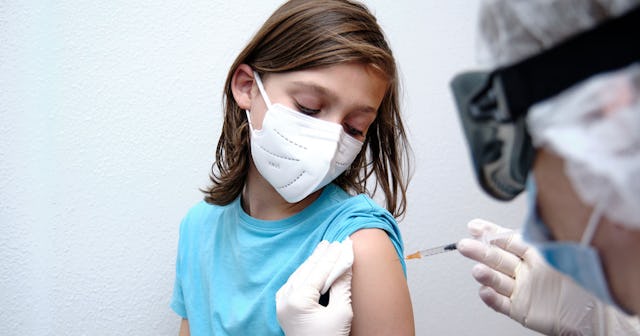FDA Approves Pfizer COVID-19 Boosters For 12- to 15-Year-Olds

The approval comes as schools reopen after the holidays amid the Omicron surge
This morning, the United States Food and Drug Administration (FDA) approved Pfizer booster vaccines for 12- to 15-year-olds in order to increase their protection from COVID-19.
As part of the approval, the FDA also shortened the time between the second shot and the booster shot from six months to five months.
In addition, the organization approved booster shots for certain immunocompromised children in the 5- 11-year-old age group.
Boosters for those 16 and over are already approved and available.
This approval comes just as most children across the country are returning to school after the winter holiday break — and also as the omicron strain of the coronavirus begins to spike cases in a number of regions and cities.
“Throughout the pandemic, as the virus that causes COVID-19 has continuously evolved, the need for the FDA to quickly adapt has meant using the best available science to make informed decisions with the health and safety of the American public in mind,” said Acting FDA Commissioner Janet Woodcock, M.D., in a press release. “With the current wave of the omicron variant, it’s critical that we continue to take effective, life-saving preventative measures such as primary vaccination and boosters, mask wearing and social distancing to in order to effectively fight COVID-19.”
In order to approve the booster for teens, the FDA stated that it, “reviewed real-world data from Israel, including safety data from more than 6,300 individuals 12 through 15 years of age who received a booster dose of the vaccine at least 5 months following completion of the primary two-dose vaccination series.”
The statement added that the approval took into account the current surge of the virus in weighing the risks and benefits of approving the booster.
Finally, the FDA stated that the data that they reviewed did not include any serious side effects.
“The data shows there are no new safety concerns following a booster in this population,” they write. “There were no new cases of myocarditis or pericarditis reported to date in these individuals….No new safety concerns have emerged from a population of over 4.1 million individuals 16 years of age and older in Israel who received a booster dose at least five months following completion of the primary vaccination series.”
The FDA has not yet approved boosters for the 5- to 11-year-old population that is not immunocompromised and it’s unclear if that will need to happen in the future.
“Children 5 through 11 years of age who have undergone solid organ transplantation, or who have been diagnosed with conditions that are considered to have an equivalent level of immunocompromise, may not respond adequately to the two-dose primary vaccination series,” they write. “Thus, a third primary series dose has now been authorized for this group. This will now allow these children to receive the maximum potential benefit from vaccination.”